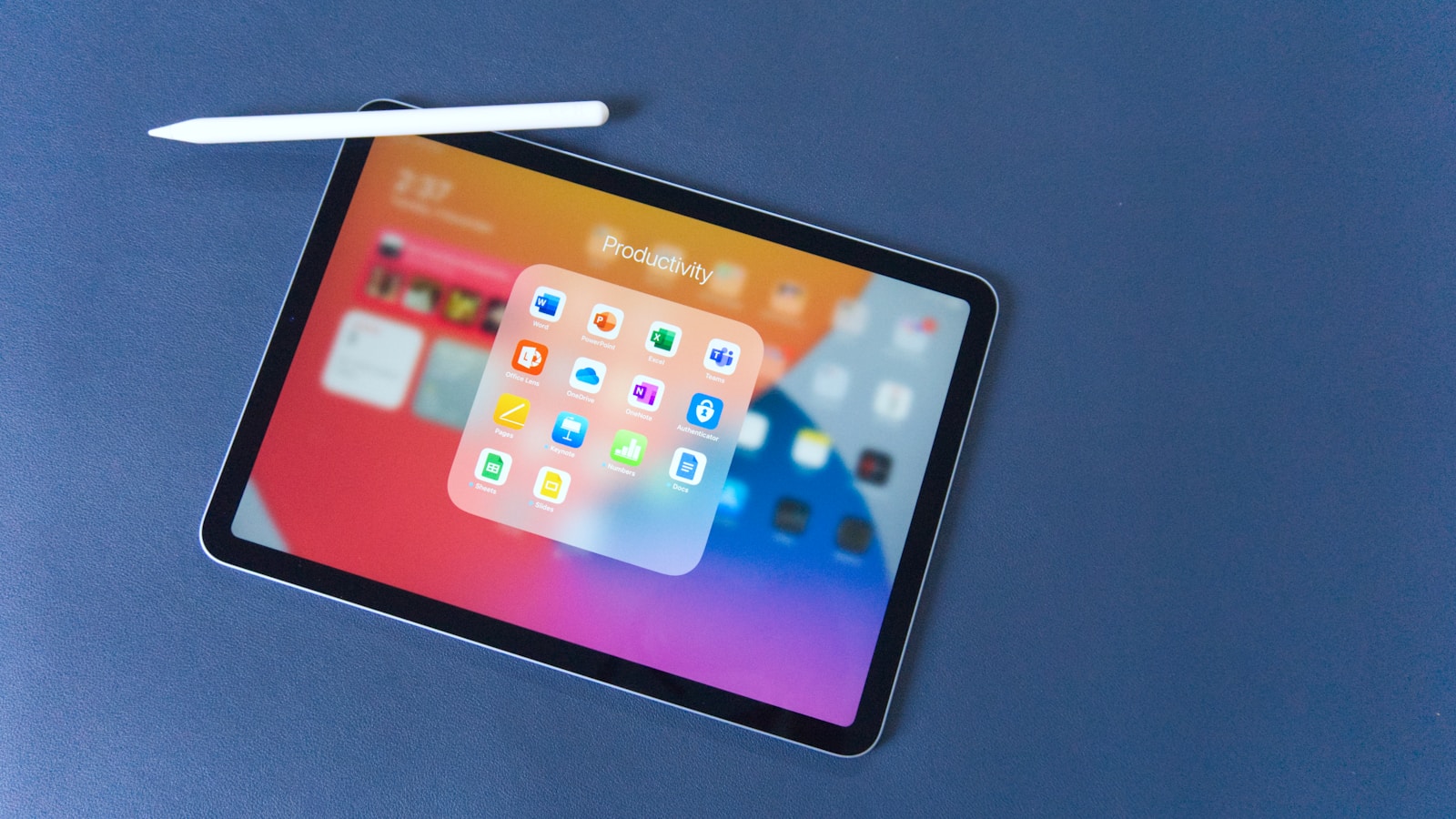iPads are generally considered secure devices, but they are not completely immune to hacking or malware (although iPadOS is pretty close). Recognizing the signs of a potential compromise is crucial for protecting your data and privacy. By being aware of unusual behavior, unfamiliar apps, and security alerts, you can take steps to secure your iPad and prevent further damage.
While the risk of viruses on iPads is low, it is still important to be vigilant and take steps to protect your device. A hacked iPad may show unusual behavior such as rapid battery drain, unexpected shutdowns, or new apps appearing that you did not download. You may also notice sluggish performance or receive alerts for excessive data usage that you cannot account for. These signs suggest the possibility of unauthorized access to your iPad.
If you suspect your iPad has been hacked or infected with a virus, take action immediately to secure your data and restore your device to a safe state. Change your Apple ID password and other account passwords accessed through the device. Isolate the iPad by disabling Wi-Fi and cellular data to prevent further data breaches. A complete check of installed apps and permissions can help identify any suspicious activity. By remaining vigilant and responding quickly, you can better protect your iPad from potential threats.
Spotting Trouble: Signs Your iPad Might Be Compromised
Unusual Behavior: Red Flags for Your iPad
One of the clearest signs that your iPad might be hacked or infected with a virus is unusual behavior. This can manifest in a variety of ways:
- Sluggish Performance: Is your iPad suddenly running much slower than usual? Apps might take longer to open, or the whole system might feel sluggish.
- Unexpected Crashes and Freezes: Apps crashing or freezing frequently, especially those you haven’t had problems with before, could be a sign of trouble.
- Battery Drain: If your iPad’s battery is draining much faster than it used to, even with moderate usage, it could indicate malicious activity running in the background.
- Strange Pop-ups or Ads: Seeing unusual pop-up ads or messages, especially those that seem out of place or unrelated to the apps you’re using, is a potential warning sign.
- Unexplained Data Usage: A sudden spike in your data usage, even when you haven’t changed your habits, could suggest that something is sending or receiving data without your knowledge.
Unfamiliar Apps and Settings Changes: Unwelcome Guests
Another sign of a potential hack is the appearance of unfamiliar apps or changes to your settings that you didn’t make.
- New Apps: If you see apps on your home screen that you don’t remember downloading, it’s worth investigating.
- Changed Settings: Pay attention to any changes in your settings, such as your default search engine, wallpaper, or app permissions. If you didn’t make these changes, it could be a cause for concern.
Security Alerts and Warnings: Listen to Your iPad
Your iPad might try to warn you if it detects a security issue. Pay attention to any alerts or warnings you receive.
- “Untrusted Enterprise Developer” message: This message indicates that an app was installed from a source outside the App Store, which can be a security risk.
- Warnings from security software: If you have security software installed, it might alert you to potential threats or suspicious activity.
Additional Tips: Protecting Your iPad
Here are some additional tips to help you stay safe and protect your iPad:
- Keep your iPad updated: Always install the latest software updates from Apple, which often include important security patches.
- Use strong passwords and two-factor authentication: Protect your Apple ID and other accounts with strong passwords and enable two-factor authentication for an extra layer of security.
- Be cautious about downloading apps: Only download apps from the official App Store and read reviews before installing them.
- Avoid clicking on suspicious links or attachments: Be wary of emails, messages, or websites that seem suspicious or ask for personal information.
- Use a reputable security app: Consider installing a security app on your iPad to help protect against malware and other threats.
What to Do If You Think Your iPad is Hacked
iPads are known for their solid security features. However, they’re not completely immune to hacking. If you think your iPad may have been compromised, it’s important to take action quickly. Here are some tell-tale signs to watch out for and steps to secure your device.

Signs Your iPad Might Be Hacked
- Strange apps: If you find apps on your iPad that you didn’t download, it’s a major red flag. Hackers sometimes install malware disguised as legitimate apps.
- Unusual performance problems: Is your iPad suddenly slow, crashing often, or restarting unexpectedly? While these issues can have other causes, malware on your device could be the culprit.
- Pop-ups and strange ads: A sudden influx of intrusive pop-up ads or ads that seem unrelated to what you’re doing online might signal that your iPad has been compromised.
- Increased data usage: Malware can run in the background,偷偷地 using your cellular data. Monitor your data usage and investigate any unexplained spikes.
- Battery draining quickly: Similar to data usage, malware can cause your iPad’s battery to drain much faster than usual.
- Changes to settings: If you find settings have been modified without your input, it could be a sign that someone else has gained access to your device.
What To Do If You Suspect Unauthorized Access
| Step | Action |
|---|---|
| 1 | Change your passwords: Immediately change your Apple ID password and any other passwords used on your iPad, such as for banking or social media apps. Choose strong, unique passwords. |
| 2 | Run a security scan: Reputable antivirus apps are available for iPads from the App Store. Run a full scan to detect and remove any potential malware. |
| 3 | Check for unauthorized profiles: Go to Settings -> General -> VPN & Device Management. If you see any profiles you don’t recognize, delete them. |
| 4 | Factory reset: If you’re still concerned, performing a factory reset will wipe your iPad and restore it to its original settings. Make sure to back up your important data beforehand. |
Remember, prevention is vital! Keep your iPad’s software updated, avoid suspicious links or downloads, and be cautious about the apps you install.
Key Takeaways
- Recognize unusual iPad activity as a possible sign of hacking.
- Change passwords and disconnect from networks if hacking is suspected.
- Regularly monitor apps and permissions for unauthorized changes.
Identifying Signs of a Compromised iPad
It’s essential to recognize the symptoms of a hacked iPad to protect your personal information. This section discusses various warning signs indicating your device might be at risk.
Unexpected App Behavior
Apps that crash often or open and close on their own may indicate a compromised iPad. If you notice apps behaving strangely, such as failing to load content or displaying ads excessively, hackers may have tampered with them.
Settings and Accounts Anomalies
Check for unfamiliar changes in your iPad settings. If settings like your screen brightness or volume adjust on their own, this could be a sign of unauthorized access. Also, look for unknown devices connected to your Apple ID or unauthorized changes in email accounts linked to your iPad.
Performance and Security Issues
A sudden drop in iPad performance can suggest security troubles. This includes apps taking longer to open or the device itself frequently freezing. Regularly update your iOS to patch vulnerabilities. Also, if your device notifies you of security issues without any clear reason, this could be a sign of malware attempting to redirect you to unsafe places.
Physical Signs of Jailbreaking
Physical signs such as unfamiliar apps that aren’t available on the Apple App Store might show that your iPad has been jailbroken. This unauthorized change bypasses security measures and can leave your device vulnerable to attacks.
Unusual Network and Data Activity
Keep an eye on your data usage. If it spikes suddenly, or if you notice strange Wi-Fi networks saved on your device, a hacker might be controlling your data flow. They could be stealing information or using your iPad for malicious tasks.
Receiving Phishing Scams
Getting frequent phishing attempts via mail or messages can be a red flag. Hackers may target your iPad to acquire your Apple ID password or other login credentials. Be wary of any link asking for personal information and verify the legitimacy of any communication claiming to be from Apple or other trusted services.
FAQs
Can I tell if my iPad has been hacked?
Yes, you can often tell if your iPad has been hacked by observing unusual behavior. Signs include sluggish performance, frequent crashes, rapid battery drain, strange pop-ups or ads, and unexplained data usage. You may also notice unfamiliar apps or settings changes that you didn’t initiate.
How can I tell if someone has accessed my iPad?
Apart from the signs of hacking mentioned above, you can also check for unauthorized access by reviewing your device’s recent activity. Look for unfamiliar apps being used, emails or messages you didn’t send, or changes to your iCloud settings. You can also check your iCloud account to see which devices are signed in and remove any that you don’t recognize.
Can an iPad get hacked?
While iPads are generally considered secure due to Apple’s tight control over the iOS ecosystem, they can still be hacked. Hackers may exploit vulnerabilities in the operating system, apps, or through phishing scams and social engineering tactics.
How do you tell if your iPad is being monitored?
Signs that your iPad is being monitored include unusual battery drain, unexplained data usage, strange background noises during calls, and apps behaving abnormally. You might also receive unexpected messages or emails containing sensitive information.
Can hackers see you through your iPad?
Yes, hackers can potentially access your iPad’s camera and microphone if they have installed malware or gained unauthorized access to your device. This can allow them to see and hear you without your knowledge.
How do I make sure my iPad is secure? & How do I make my iPad safe?
You can make your iPad more secure by following these practices:
- Keep your iPad’s software updated to the latest version.
- Use a strong passcode and enable two-factor authentication for your Apple ID.
- Avoid clicking on suspicious links or downloading apps from untrusted sources.
- Be cautious about granting app permissions and review them regularly.
- Install a reputable security app for added protection.
How to know if an iPad has malware?
Signs of malware on an iPad are similar to those of hacking, including sluggish performance, unexpected crashes, excessive battery drain, and the appearance of unfamiliar apps or settings changes.
How to do a security scan on iPad?
While Apple doesn’t offer a built-in security scan feature on iPads, you can achieve a similar effect by using a reputable security app from the App Store. These apps can scan for malware, detect vulnerabilities, and help protect your iPad from various threats.







